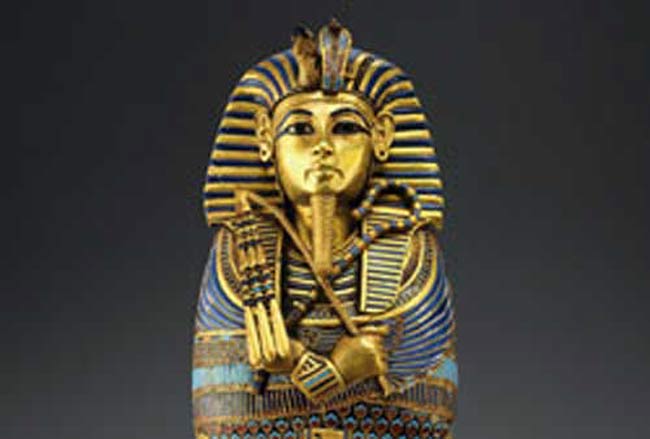King Tut's Mom and Dad ID'ed

Candidates for King Tut's mother and father have been identified using DNA analyses from royal Egyptian mummies.
King Tutankhamun ruled from 1333 to 1324 B.C., during the period of ancient Egyptian history known as the New Kingdom.
Though he is possibly the most well-known of the Egyptian pharaohs, many mysteries still exist about the life, death and parentage of King Tut. But new DNA tests may have helped answer the question of what killed Tut, as well as exactly who his parents were.
"Little was known of Tutankhamun and his ancestry prior to Howard Carter's discovery of his intact tomb (KV62) in the Valley of the Kings in 1922," said the researchers who made the new findings. "But his mummy and the priceless treasures buried with him, along with other important archeological discoveries of the 20th century, have provided significant information about the boy pharaoh's life and family."
Zahi Hawass of the Supreme Council of Antiquities, Cairo, Egypt, and colleagues analyzed the DNA of 11 royal mummies of the New Kingdom, both to search for any signs of genetic disorders that could have killed Tut, as well as to establish familial relationships between them.
The DNA results suggest that a combination of malaria infection and a bone disorder killed Tut.
In addition to Tutankhamun, 10 mummies (circa 1410-1324 B.C.) possibly or definitely closely related in some way to Tutankhamun were chosen; of these, the identities were certain for only three. In addition to these 11 mummies, five other royal individuals dating to the early New Kingdom (circa 1550-1479 B.C.) were selected that were distinct from the supposed members of the Tutankhamun lineage — a sort of mummy control group.
Get the world’s most fascinating discoveries delivered straight to your inbox.
Genetic fingerprinting allowed the construction of a five-generation pedigree of Tutankhamun's immediate lineage.
The researchers found that several of the anonymous mummies or those with suspected identities were now able to be definitively ID'ed, including Tiye, mother of the pharaoh Akhenaten and grandmother of Tutankhamun. Another mummy is thought to be Akhenaten, father of Tutankhamun.
These identifications are supported by unique anthropological features that the individuals have in common, as well as the fact that they share the same blood group.
A third mummy was found to be the likely candidate for Tutankhamun’s mother.
The new findings are detailed in the Feb. 17 issue of the Journal of the American Medical Association.
- Images: Amazing Egyptian Discoveries
- Video - The Screaming Mummy: Tortured Among Pharaohs?
- Ancient Mummy's Face Recreated
 Live Science Plus
Live Science Plus






